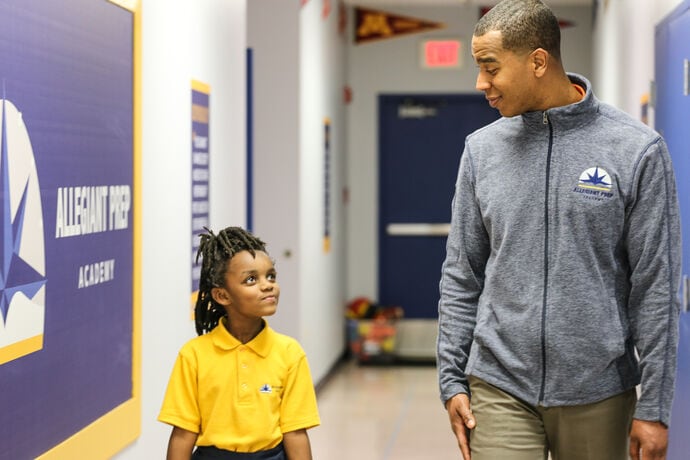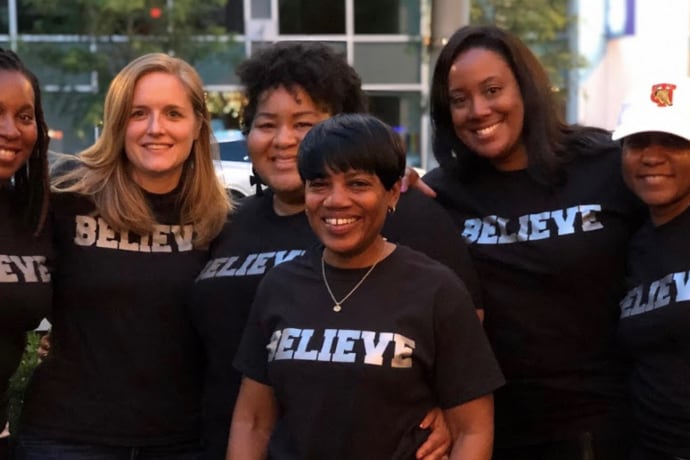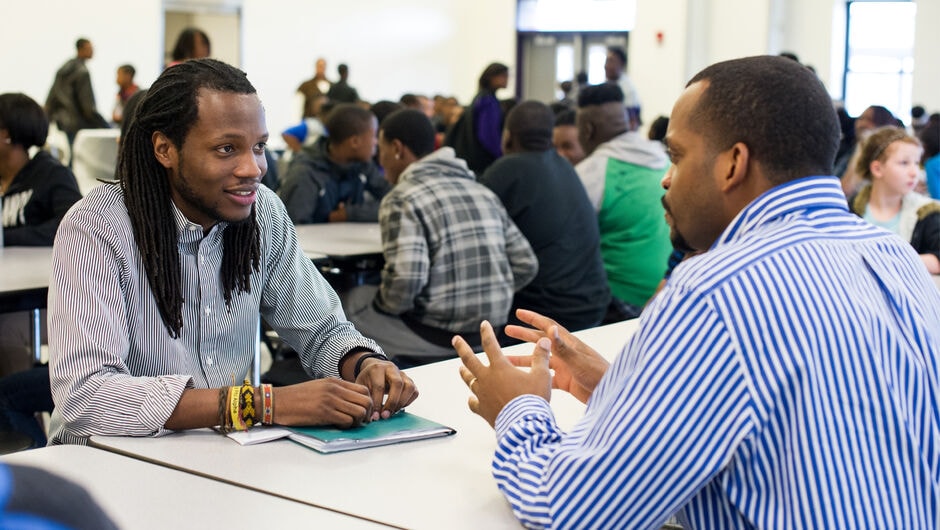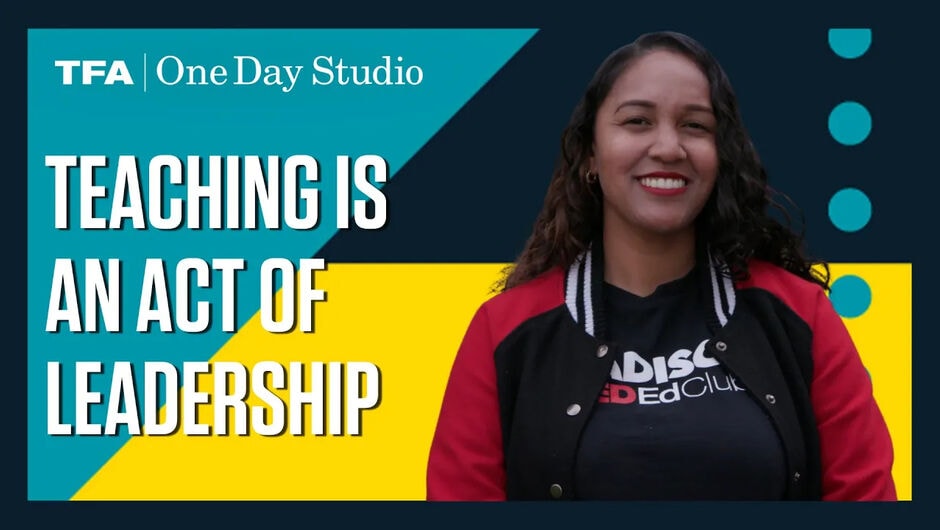‘No One is Invisible:’ Leadership Lessons and Advice from School Leaders
Four Indianapolis alumni school leaders share their personal 'why' for being in educational equity and illustrate how their schools are putting students' needs and aspirations first.
With an ever-evolving education landscape and diverse student population, there is strong pressure on school and systems leaders to rise to the challenge, identifying and implementing effective practices to ensure all students are set up for success.
We sat down with four alumni school leaders who share, from their experience, valuable lessons and practices that have strengthened their leadership in serving the needs and aspirations of their students and stewarding equity-oriented systems change across the city.

Prioritize learning and self-improvement: lean on a support system and don’t be afraid to ask for help
“People come in this building all the time, tour, observe, and give us feedback,” shares David Spencer (Houston '08), founding principal of KIPP Indy Legacy High School, which opened this fall. As a first-time principal, Spencer revealed how blessed he feels to have multiple people in the city to provide support and share resources when he asks for it. “Other leaders in this city make this work – I feel supported.”
Seeking out guidance has also been immensely valuable to Cody Stipes (Indy '11), principal of Cold Spring School. “I'm so fortunate to have had great mentors through TFA and the corps who helped shape and mold me…there's always someone willing to help here in our community. You just have to reach out and ask. Reach out to other alumni, TFA Indy, other colleagues - everyone wants our children to succeed.”
Kim Neal (St. Louis '02), founding principal of BELIEVE Circle City High School, which will open next fall, agrees about how supportive relationships play an instrumental role: “I am a stronger leader today and have a deeper level of impact because of the network of colleagues and lifelong relationships I've gained through TFA.”
Developing meaningful relationships: value the people you’re serving and leading
“At the root, everyone wants to be seen and heard and feel loved,” shares Neal. At BELIEVE, she aims to develop a “village” model, in which a structure will be established for advisors and peer groups to cheer students on and make them feel valued. “[Students will] feel like they have a support group and friend. No one is invisible, and we want to create an environment where every child feels that.”

Ryan Gall (Detroit '02), executive director of Victory College Prep, points to the importance of valuing the people you’re leading and working alongside as well: “I love our people and students so much. I love coming to work. That’s what makes it worth coming back—tackling these really challenging problems with people I experience joy with.”
Gall also stresses how showing people that you value them comes from acting with humility and seeking to understand different perspectives: “You don’t know what your kids and teachers are going through. As a young corps member, I thought I knew the answer or cause of a problem, when there were so many things moving in my kids’ lives and in the school.”
Understanding and reimagining equitable systems: focus on your north star to guide your approach to problems and solutions
With the immense pressure and expectations of the school leadership role, sometimes it’s easy to get caught up in the day-to-day. Gall advises that not losing sight of the school’s north star allows teams to prioritize solving problems in a healthy, honest, and timely manner: “If we're not moving in the right direction, sheltering anyone from gaps never helps us. It usually just means we’ve saved the problem for another day. If something's not working in the classroom, we need to attack it head-on so we can face reality.”
Spencer also reveals how his team focuses on being student-centered to persevere through challenges: “Building a brand new school, there were things we thought we thought we were going to get right, that we didn't. I didn't imagine scenarios that came up. Don't get stuck in the problem. The problem is there, and we have to push through for our students.”
Additionally, Spencer acknowledges the benefit of being part of a community that has a shared long-term vision for an equitable system that serves all students: “Being in a city with school leaders who care about supporting all kids, rather than having a ‘my school better than yours’ mindset, is a breath of fresh air. This level of investment and collaboration, I've never seen it to this extent anywhere else.”
Sign up to receive articles like this in your inbox!
Thanks for signing up!
Content is loading...








